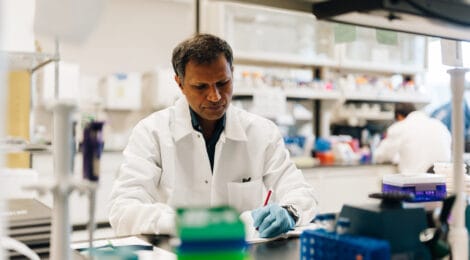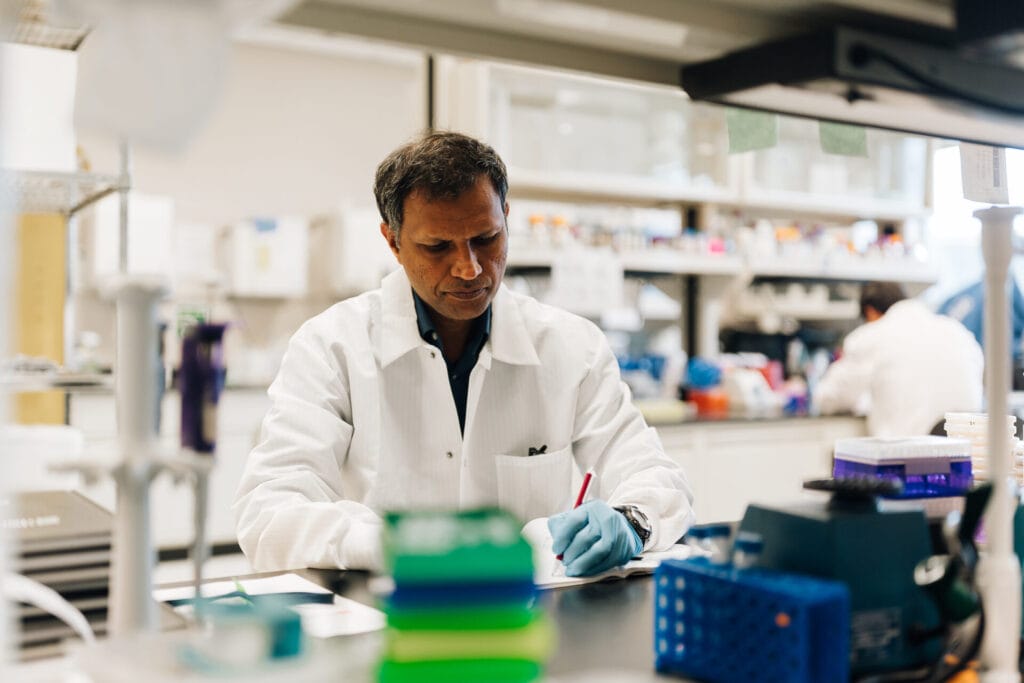Using fungicides in agriculture has long been a double-edged sword, providing effective disease management but also leading to environmental concerns such as resistance development, pollution and unintended harm to non-target organisms. As growers face limited options with the withdrawal of legacy chemistry from the market, there is a pressing need for sustainable alternatives to conventional agroprotectants.
One promising solution: biocontrol agents.
Biocontrol agents, which are naturally occurring beneficial microorganisms such as bacteria and fungi, offer environmentally friendly alternatives for disease management. The Plant Endophyte Research Center at the Institute for Advanced Learning and Research (IALR) maintains a library of more than 2,000 characterized bacterial endophytes. These endophytes reside in the internal plat tissues and function as biostimulants and biocontrol agents.
Fighting Pythium with Biocontrol Agents
In a recently published study, a team of researchers led by IALR Senior Scientist Dr. Sajeewa Amaradasa investigated the efficacy of a bacterial endophyte as a biocontrol agent against Pythium ultimum for cucumber and lettuce production.
Featured in the scientific journal POLS ONE, the recently published study investigates the use of a bacterial endophyte called IALR1619 (Pseudomonas sp.) to combat a common plant pathogen, Pythium ultimum. This pathogen causes issues in hydroponic lettuce and cucumber farming by stunting growth and even killing young plants. Pythium is a difficult-to-control disease in indoor and greenhouse farming systems, and there are only a few chemical treatments.
The study found that treating cucumber seedlings with IALR1619 improved their survival rates both when the plant was exposed to Pythium ultimum within one day of inoculation and several days later. Additionally, lettuce plants treated with IALR1619 showed better growth and higher yield than untreated ones, indicating the potential of this approach in different farming systems with a controlled environment.
Implications for Controlled Environment Agriculture Production
The findings of this study have significant implications for sustainable agriculture. By harnessing the natural protective mechanisms of biocontrol agents, growers can mitigate the environmental impact of conventional fungicides while maintaining effective disease control. Using biocontrol agents offers a promising avenue for integrated disease management strategies, providing growers with sustainable alternatives to chemical treatments.
The Research Team
Dr. Sajeewa Amaradasa, Senior Scientist, IALR
Dr. Chuansheng Mei, Chief Scientist, IALR
Yimeng “Jack” He, Senior Analytical Chemist, IALR
Robert Chretien, Laboratory Research Associate, IALR
Mitchell Doss, Virginia Tech Research Specialist
Dr. Tim Durham, Associate Professor of Crop Science at Ferrum College
Dr. Scott Lowman, Vice President of Applied Research, IALR


